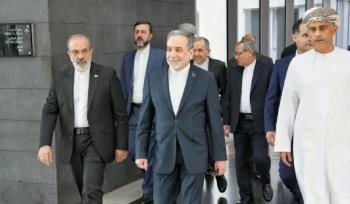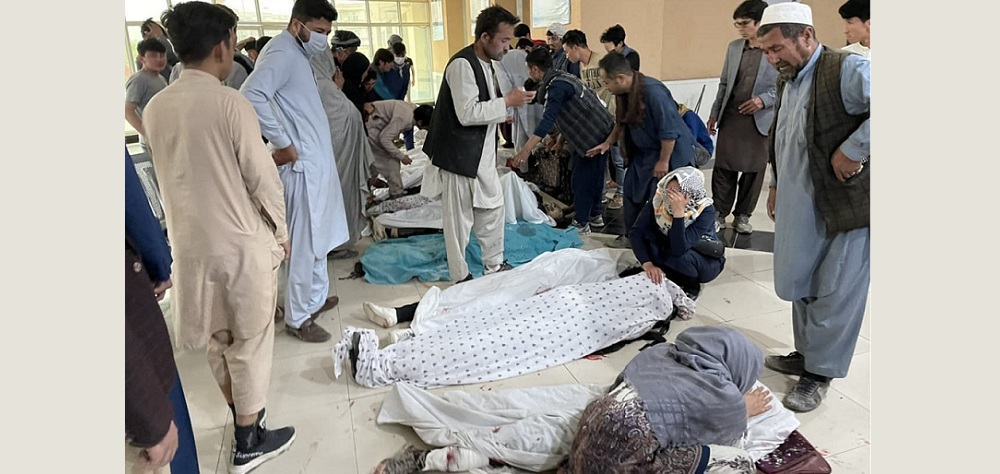Alwaght- Since the Taliban have seized the power in Afghanistan in August 2021, the number of the crimes by the terrorists against the Shiites of the country has been more than the number of the months of the group's rule. The first deadly terrorist attack against Shiites under the Taliban rule took place on October 2021 in a mosque in Konduz, killing 72 and injuring more than 200 others. This was a bloody start for the Afghanistan's Shiites and continued in other cities domino-style. On October 15 the same year, a suicide attack on the Friday prayer in a mosque in Kandahar took 63 lives and injured 83. In April, three suicide bombings in two schools in the Shiite-majority neighborhood of western Kabul killed 26 and injured 19. A huge blast in Khalifa Mosque of Kabul again in April, regular attacks on the Ashura mourning ceremonies with dozens of fatalities, and tens of other terrorist attacks in the majorly Shiite inhabited cities of Afghanistan are just part of the terrorist crimes against Shiites under the Taliban's rule and yet are widening day by day.
These crimes, many of which are committed by the ISIS terrorist group, have been committed in various ways in recent days in the Shiite neighborhoods of the capital Kabul, and in the latest case, a suicide bomber blew himself up in the Kaj educational center in the Dasht-e-Barchi district of Kabul, killing 32 Shiite students and injuring more. As before, the Taliban only condemned this crime and claimed that such actions are taken with the aim of destabilizing its rule in Afghanistan.
Targeted killing of Shiites under the Taliban
Though the Taliban leaders claim that over the past year they restored order and security to Afghanistan, what happens on the ground proves them wrong. There were terrorist attacks against Afghans under the previous government, but since the Taliban takeover 14 months ago, deadly blasts against Shiites have increased sharply, and hundreds of people have gone victims. This increase in criminal actions shows that, contrary to the claims of Taliban officials, security has become an unattainable mirage for the Shiites in Afghanistan. They constitute about 15-20 percent of the country's population, but they are more exposed to terrorist threats than other religions groups and live in constant fear.
A majority of the terrorist attacks are carried out in the Shiite Hazara areas, promoting the presumptions that the Taliban is likely closing its eyes to the terrorists to commit their crimes with comfort. The residents of the Shiite areas say that the Taliban security forces do not pay attention to the security of these areas and are only looking for specific goals. Shiites living in the west of Kabul have said that the Taliban forces are harassing, arresting, and torturing them in the streets and at the same time are indifferent to the explosions that occur regularly in Shiite areas.
With the majority of these terrorist attacks conducted by the ISIS, it is no surprise to blame the Taliban shortfall of responsibility to security. The Taliban's acting foreign minister in July admitted that last year the group released 1,800 ISIS prisoners. Releasing them and giving them freedom of movement across the country leads many to the conclusion that the Taliban is accomplice to the crimes of the ISIS that has not taken any action against the Sunnis or the Taliban forces so far. By juxtaposition of the developments, it can be concluded that the Taliban administration has no concerns about violence against the Shiites. Terrorist crimes have increased to such an extent that even Sunnis of Afghanistan have expressed their disgust and anger over the attacks and expect the Taliban to fulfill their promises at least in establishing security at home.
The rise in these attacks, on the other hand, casts doubt on the group's capability to secure peace, leaving the Afghans with the question about how this government can settle political and economic crises while it cannot secure the capital. This question is conquering more minds in Afghanistan day by day.
The crimes are raising critical voice of Shiites in the region who pan the Taliban for failure to guarantee security and for negligence of duty for protection of the Shiite lives. In a tweet, Moqtada al-Sadr, the leader of Iraq's Sadrist Movement, brazenly blamed the Taliban group for successive explosions targeting the country's Shiites. The Shiites of other Islamic countries also expressed their concern about this issue on social networks and declared the Taliban responsible for these inhumane crimes.
Many human rights activists describe the terrorist acts against Shiites in Afghanistan as a systematic genocide. The Taliban, which touts security as its greatest achievement, has not taken any effective measures to prevent these attacks, and such crimes have become a routine in the Hazara areas. Amnesty International in a statement called the suicide attack on the educational center in Dasht-e-Barchi "horrific" and said that these attacks in Hazara areas show the shameful inability and absolute failure of the Taliban to protect the people of Afghanistan. Amnesty International further stated it has repeatedly documented targeted killings of members of the Hazara Shiite community after the Taliban took over more than a year ago.
Taliban is under charges as it has so far failed to unveil the identity of the suicide attackers as they can possibly be from the group's body.
The increase in suicide attacks, which mainly target mosques and schools, shows that the Taliban has not been able to defend the lives of Shiite citizens in Afghanistan. The complete seizure of power by the Taliban and ban from the government of other political groups who could be effective in establishing security and solving political and economic problems shows that group's leadership only cares about its interests, rather than national interests. This is while all countries have tied recognition of the Taliban to formation of an inclusive government, but this group refuses to do so and has no intention of bringing other political leaders into the cabinet.
Regional states' negative view of the Taliban performance
Terrorist operations in Afghanistan have grown so sharply that even regional states are expressing their severe worry. They are afraid that instability in Afghanistan can spill over to them and bring them face to face with new security challenges.
Over the past year, the countries of the region have tried to resolve the crisis of instability in Afghanistan and prevent the spread of insecurity to the whole region by arranging several conferences. These countries have made a lot of efforts to help the Taliban government overcome the economic crisis, and meanwhile China and Iran have taken the lead, but the collapsing security conditions in Afghanistan cause other countries to reconsider their approach to the Taliban government.
The Taliban are declaring their readiness to host foreign investments while they are incapable of securing their citizens. With the foreign investment attracted to secure and peaceful areas, the Taliban's failure to thwart terrorist operations scares away the investors and foreign capital. After all, regional states come up with the conclusion that a governing group that cannot guarantee own citizens' security cannot protect their investments and nationals.
The prevalence of insecurity in Afghanistan and Taliban's failure to check terrorist activities only isolates Taliban's authoritarian government in the world and knocks it out of the favor of its own people who see themselves devoid of security as their most basic right.



























